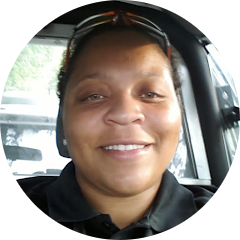Non-owner Trailer Coverage
We have over three decades of experience in providing non-owner trailer coverage in America. Work with us and provide the best truck insurance to your commercial vehicles at a matchless affordable price. Finding suitable insurance coverage for non-owned trailers is tough. Don’t worry! Let us customize it for you and provide the right coverage for your leased trailer!
Get affordable coverage for your non-owned trailer!
What is non-owner trailer coverage?
Trailer interchange vs. non-owned trailer coverage
- Explosion
- Vandalism
- Theft
- Collision
- Fire
Does My Truck Insurance Cover My Trailer?
Truck insurance policies typically cover your owned vehicle and may include limited liability for trailers you own. However, if you are using a non-owned or leased trailer, you generally need additional coverage, like non-owner trailer coverage, to fully protect against damages to the trailer when it’s attached to your truck. Non-owner trailer coverage ensures that in case of an accident, the trailer you don’t own is covered, as standard truck insurance does not usually extend to leased or borrowed trailers. If you have more questions about your truck trailer’s insurance coverage, contact our team today so that we can ensure you find the answers you’re looking for.
Why do you need non-owned trailer coverage?
If your trucking business involves the use of leased or borrowed trailers on a regular basis, then you definitely need this coverage. The trailer that you don’t own should be covered for many reasons. For instance, if your truck catches fire due to some issue you never knew existed can cause serious damage to the trailer you are carrying. Non-owned trailer coverage protects against the physical damages caused to the leased trailer. Not having this coverage can extremely impact your trucking operations.
Also, the repairing cost of trailers can go unimaginably higher and this is the very reason why you need this coverage for.
This insurance is right for you if:
- You are using someone else's trailer to transport goods.
- You don’t want to pay for the hefty trailer repairing expenses arising out of accidents.
What are the benefits of non-owned trailer coverage?
- Compensates the damages: This coverage pays you for the physical damages both small and big to the non-owned trailers when accidents happen.
- Peace of mind: Pulling someone else's trailer under your custody can be stressful. If you have non-owned trailer insurance then you can continue trucking operations without worrying.
- Financial support: Repairing trailers and heavy equipment is costly. This policy provides financial help when circumstances lead to damage to the non-owned trailer.
- Maintain reputation: Damages to someone else trailers can make your business repute questionable in terms of trust and reliability. Carrying this coverage will show your financial concern towards the non-owned trailers and will make your business more trustworthy.
GET YOUR CUSTOM FREE QUOTE
Sheri is the best customer service rep around. Very pleasant and very informative.
Niomi Ross
4.7/5
TESTIMONIALS












FAQs
- Deductible you choose
- Value of equipment
- Location you operate
- Past driving records
- Risk factors involved
- Limit of coverage
- Loading and unloading the freight
- Fire
- Vandalism
- Theft
- Other types of accidents





